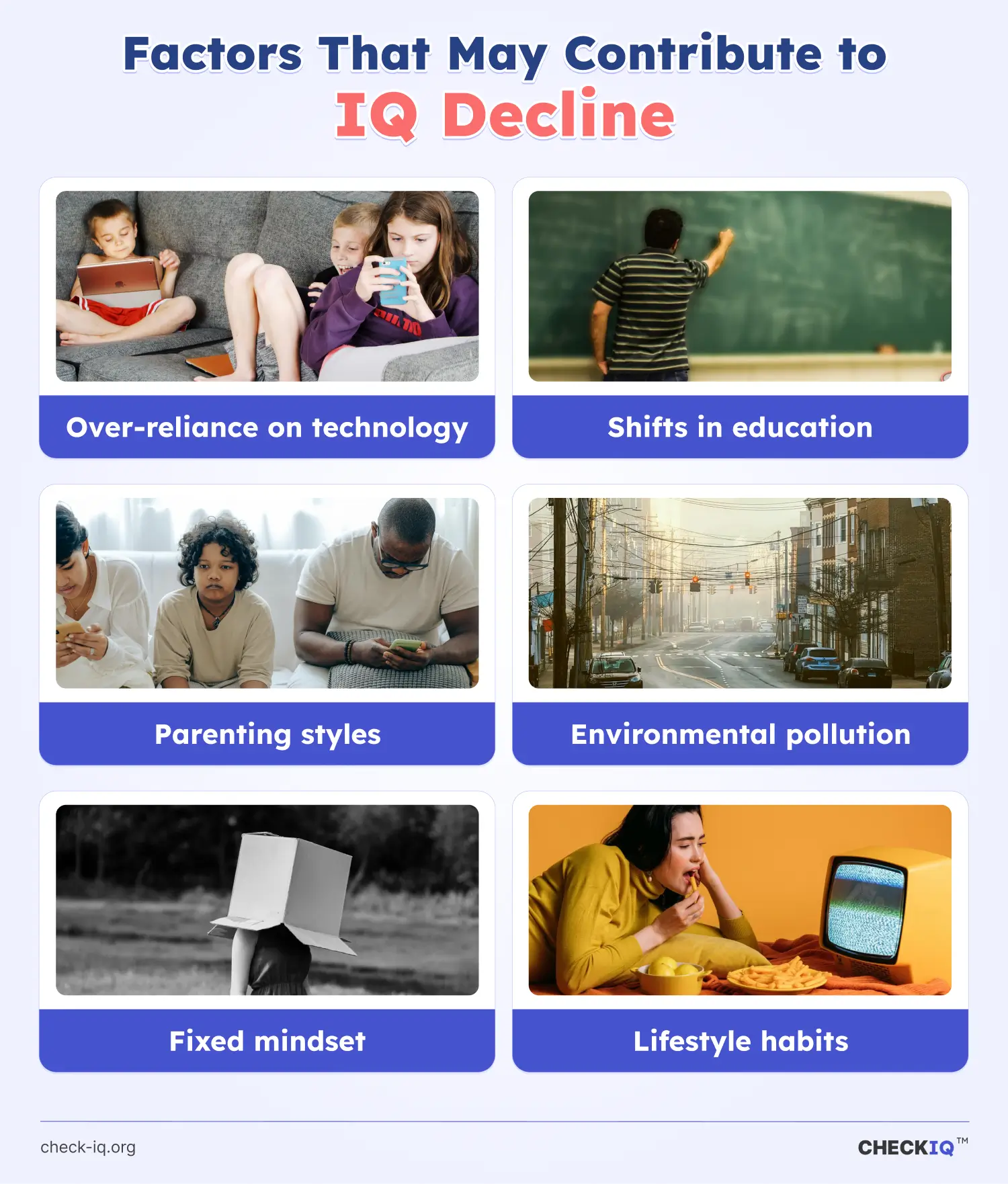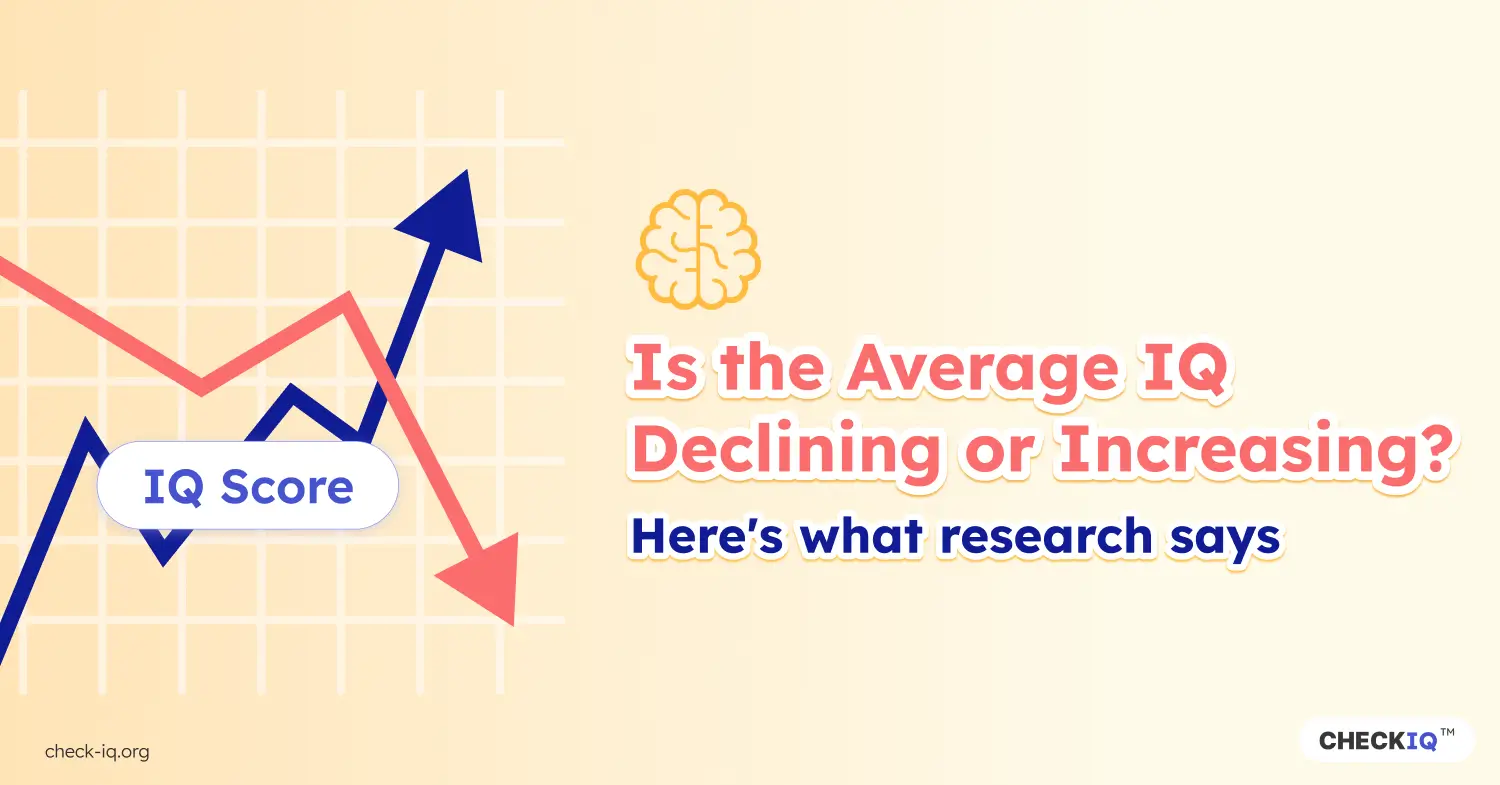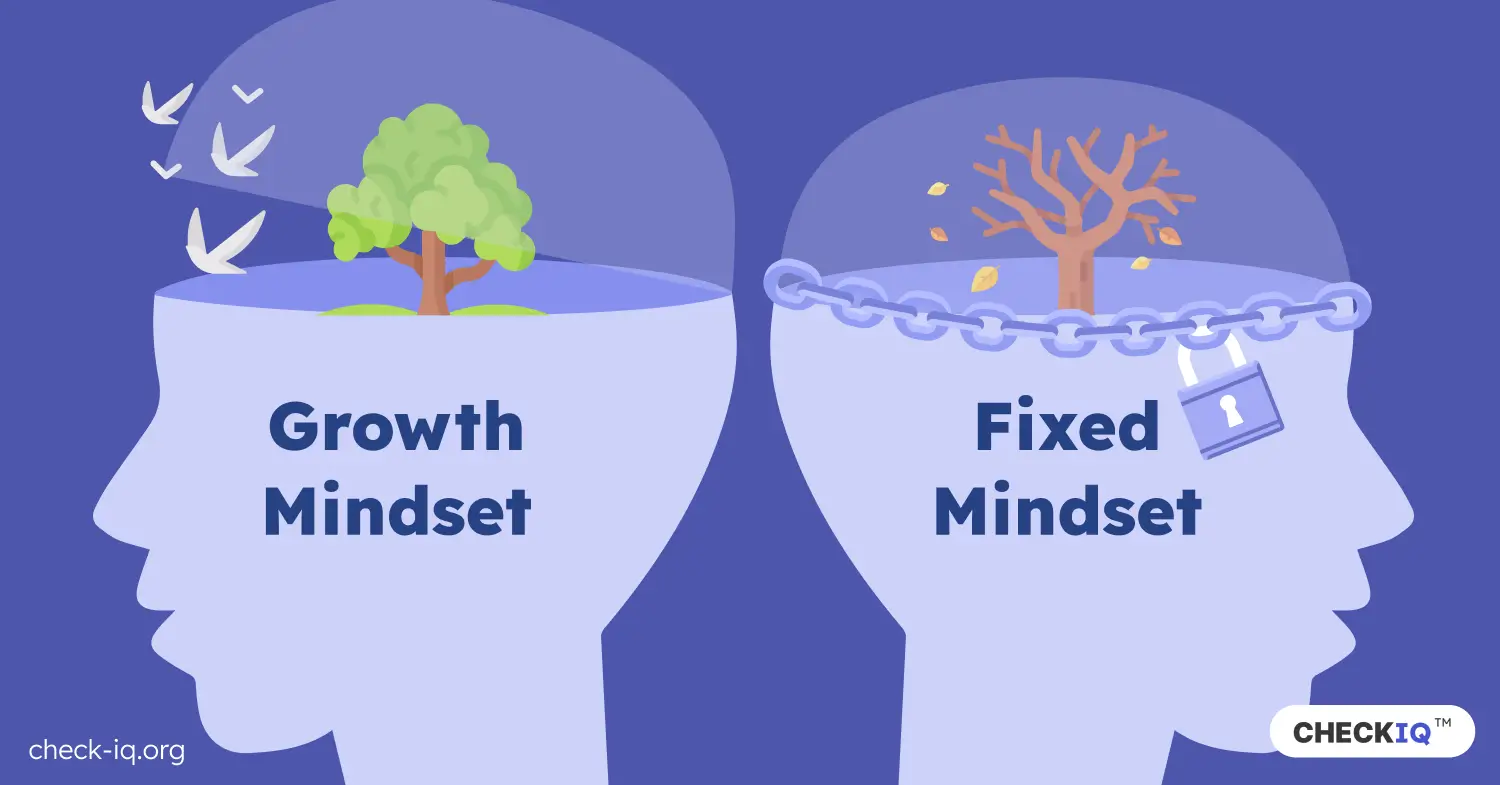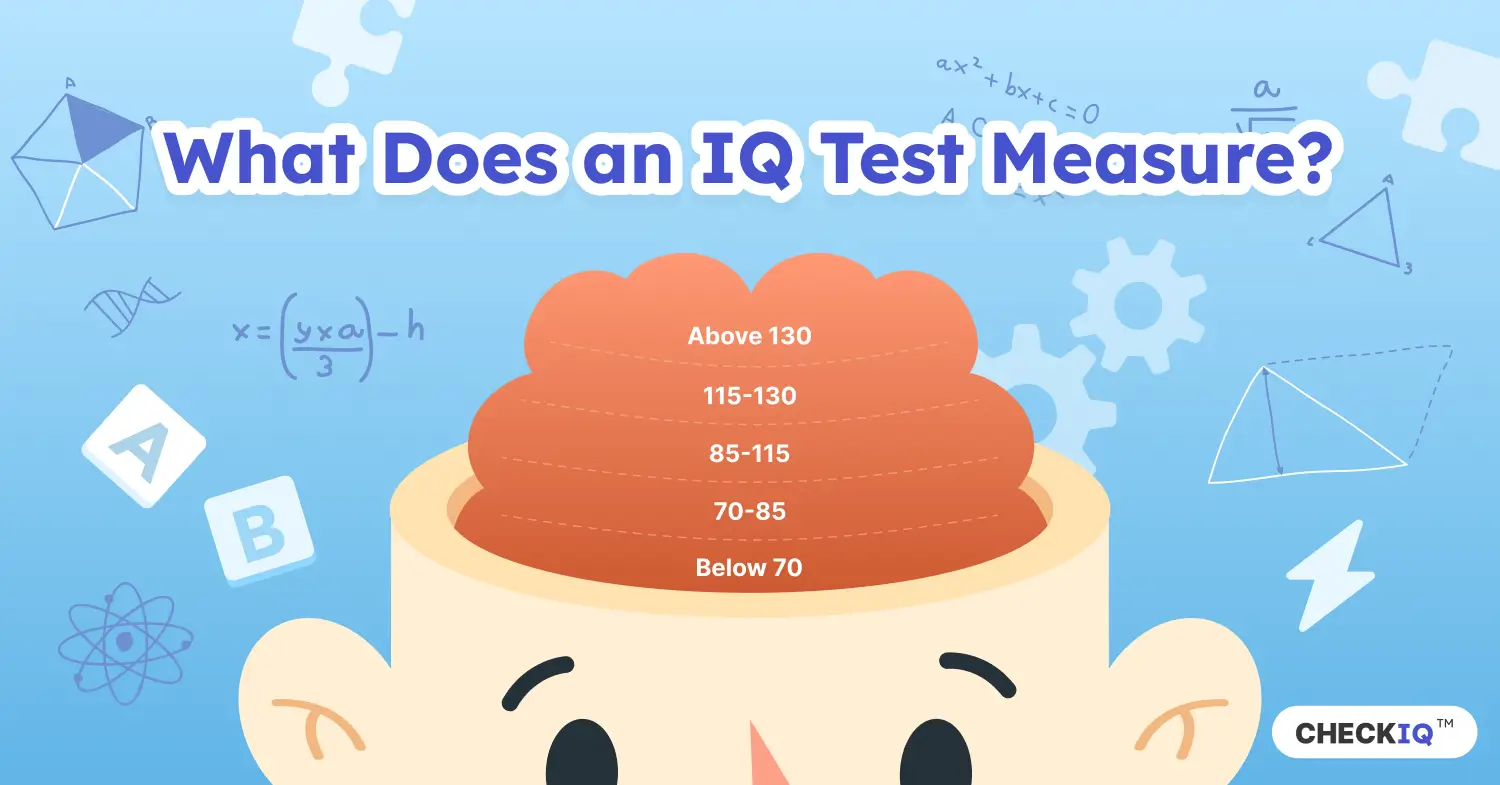Researchers are noticing an overall decrease in IQ scores across generations - but why? How did we shift so quickly from the consistent increases of the 20th century to the opposite trend?
Since there’s no definitive answer, we have plenty of room for discussion. Whether it’s about social or environmental factors, or there are issues with the IQ tests themselves, let’s explore this phenomenon together and see if we can find any logical explanation for it.
Clarifying the IQ Trends
It's essential to understand that both increasing and decreasing trends in IQ scores have been observed over time. While the 20th century saw a consistent rise in IQ scores, a phenomenon known as the Flynn Effect, recent studies indicate a decline in scores in some areas, referred to as the Reverse Flynn Effect. These opposing trends highlight the complex nature of intelligence and its measurement, influenced by various environmental, social, and technological factors.
First, we’ll start with the Flynn Effect, a trend that highlights the significant increase in IQ scores over the past century. Then we’ll explain its opposite, the so-called reverse Flynn Effect, which contends that IQ scores have been declining. We’ll explain the causes behind both of those trends to understand how they can coexist.
Increasing IQ: The Flynn Effect Explained
The Flynn Effect corresponds to the significant and consistent rise in IQ scores observed worldwide throughout the 20th century.
This trend has been observed in both fluid intelligence, which involves problem-solving and processing new information, and crystallized intelligence, which encompasses general knowledge, reasoning, and vocabulary.
James Flynn, who discovered this phenomenon, explained it in a TED talk back in 2023:
We get far more questions right on IQ tests than each succeeding generation back to the time that they were invented. (...) if you score the people a century ago against modern norms, they would have an average IQ of 70. If you score us against their norms, we would have an average IQ of 130.
In simpler terms, if you took an IQ test from 100 years ago and compared it to today’s standards, people from back then would score much lower, and we would score much higher against their norms.
Research from the University of Houston's meta-analysis provides further insights into the Flynn Effect, noting an average increase of 2.31 IQ points per decade across 285 studies since 1951.
This increase is slightly lower than previous estimates but remains robust, particularly when focusing on modern IQ tests like the Stanford-Binet and Wechsler IQ tests, where the increase is approximately 2.93 points per decade.
A reliable 100% adaptive online IQ Test. Get your IQ score immediately.
Start My IQ Test
What Causes the Flynn Effect?
Factors like better nutrition, improved education, and stimulating environments were believed to contribute to this increase. A research paper, David Shenk from Brown University highlighted that the rise in IQ scores mostly has something to do with cultural changes.
Shenk explains that society's increased engagement with abstract concepts and more complex ideas has made people smarter over time. This supports the notion that intelligence is not fixed but rather a set of continually developed skills.
Each generation faced new challenges and technologies, requiring adaptability and problem-solving skills. Intelligence tests captured these shifts, reflecting the evolving demands of society. The University of Houston research indicates that the Flynn Effect is consistent across various demographic and methodological variables, supporting its validity and relevance.
Decreasing IQ: The Reverse Flynn Effect Explained
According to the Flynn Effect, IQ levels have been increasing for decades. Now let’s explore a more recent trend – which is rather concerning: the decline in IQ scores, often referred to as the "Reverse Flynn Effect."
Why are IQ scores declining?
A 2022 study by Northwestern University researchers found that, from 2006 to 2018, the scores of US adults in logic, vocabulary, and math have decreased, while spatial reasoning has improved. This shift may have taken place due to heavy reliance on technology, which can reduce mental exercise by providing cognitive shortcuts.

Changes in education, parenting, and technology might also play a role. Today’s education may not leverage the skills measured by IQ tests, and our current reality could be changing our daily cognitive demands. Environmental factors, such as air pollution, are also being investigated for their potential impact on cognitive abilities.
Supporting this, research by Bernt Bratsberg and Ole Rogeberg suggests that the Flynn effect and its reversal are both caused by environmental factors. Their study found that differences in IQ scores within families could completely explain the observed trends. Their study shows that while some cognitive abilities are declining, others like spatial reasoning are improving.
As you can see, whether the average IQ is increasing or decreasing is still debated, with both trends likely influenced by the changing environment and societal factors.
Are IQ tests getting harder?
This may not be the case. While it would be easy to conclude that IQ tests are getting harder, we should also consider that perhaps they no longer align with the skills and knowledge crucial in the digital age.
Even more, IQ tests have always had limitations. Authors such as researcher Russell T. Warne have amply explained how IQ tests are mostly conceived for western populations, while the non-western view on intelligence is vastly different.
Therefore, a future approach should take both aspects into consideration, namely the changes in our present society and the need for inclusivity.
Consequences of decreasing IQ scores
Changes in IQ scores have significant implications for society. For instance, lower IQ scores might lead to less academic achievements, and might even deepen inequalities, if they’re prevalent in certain communities or groups.
Declining IQs might also challenge the development of future leaders and innovators. Communication skills, crucial in modern life, could suffer if verbal reasoning abilities decline. This trend could impact various sectors, from technology and healthcare to education and politics, where high-level problem-solving and critical thinking are essential.
However, this would imply that the tests we currently use are still able to accurately measure such cognitive skills.
Can We Reverse the Trend of Declining IQs?
Is this decline in IQ inevitable? Not necessarily. Experts are looking for ways to stop or even reverse the drop in IQ scores. For instance, improving education by focusing on critical thinking and problem-solving could help. Using technology in ways that make us think more, instead of less, might also be beneficial.
Research by Stuart J. Ritchie and Elliot M. Tucker-Drob found that more education helps boost IQ. They studied over 600,000 people and discovered that each extra year of school can increase IQ by 1 to 5 points. This shows that staying in school longer and learning more can make us smarter.
Another important factor affecting IQ is air pollution. Research from the University of Rochester Medical Center found that exposure to air pollution can harm our thinking skills. Air pollution can damage memory and learning abilities, and might even change how our brains work by causing inflammation and stress. This indicates that cleaner air could help protect our brains and improve IQ scores.
Another research highlights how our environment influences intelligence. The research points out that factors like family, peer groups, education, and nutrition play a significant role in shaping our cognitive abilities. For example, although part of intelligence is genetic, children who receive more praise for their efforts tend to develop better problem-solving skills. Moreover, enriching environments that provide stimulating activities can boost brain development.
This significant role of the environment in shaping intelligence is also supported by the study conducted by Norwegian researchers Bratsberg and Rogeberg.
The role of AI
Advances in artificial intelligence (AI) will transform modern life by reshaping various sectors including transportation, health, science, and finance.

Back in 2018, a survey by the universities of Oxford and Yale, already predicted that AI would outperform humans in many activities within the next decade. With all the progress in the field of AI that has occurred in recent years, this prediction feels almost prophetic!
However, if we begin to rely on AI too much, this may prevent us from developing essential cognitive skills, such as critical thinking and concentration.
Frequently Asked Questions
Does increased screen time really affect IQ levels?
It depends: research shows mixed results, as the type of screen activities can make a difference.
For instance, a 2020 study on screen time and cognition shows that video games can positively impact intelligence, whereas social media and TV have a negative impact.
What is fixed intelligence vs. fluid intelligence?
Intelligence includes two main types: fixed (crystallized) and fluid. Fixed intelligence involves recalling and using learned information, as measured by traditional IQ tests. Fluid intelligence is the ability to solve new problems and think on your feet, crucial for novel situations. Both types are important and influenced by different factors throughout life.
How can I improve my IQ?
You can improve your IQ through education and new learning experiences. Attending school and studying hard provides a strong base for your thinking skills. Additionally, learning a new language, playing a musical instrument, and reading regularly can boost your brain power.
Taking care of your overall brain health is also important. Regular exercise helps blood flow to your brain, and a balanced diet gives your brain the nutrients it needs. Getting enough sleep is crucial for your brain to process and store information. Finally, keep your mind active by doing puzzles, playing strategy games, and solving problems. These activities can help keep your brain sharp and potentially increase your IQ.







